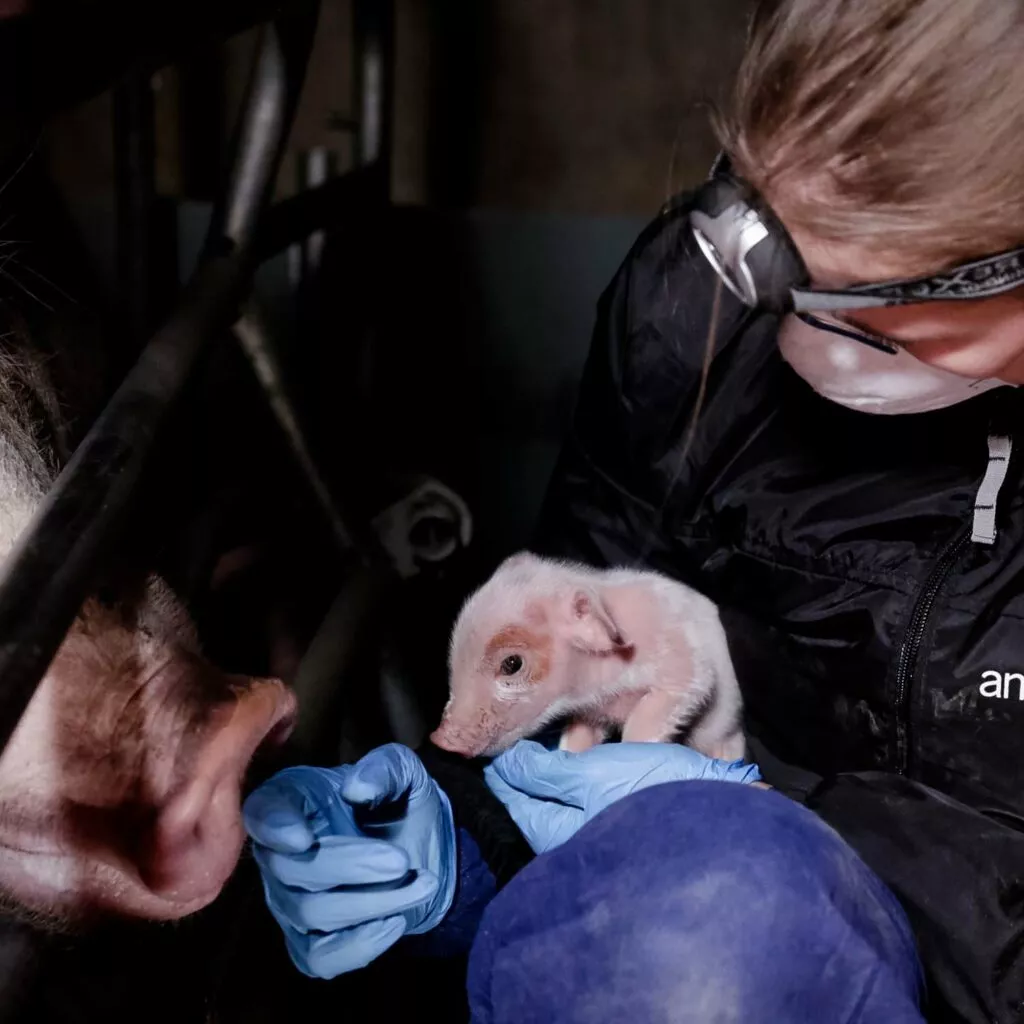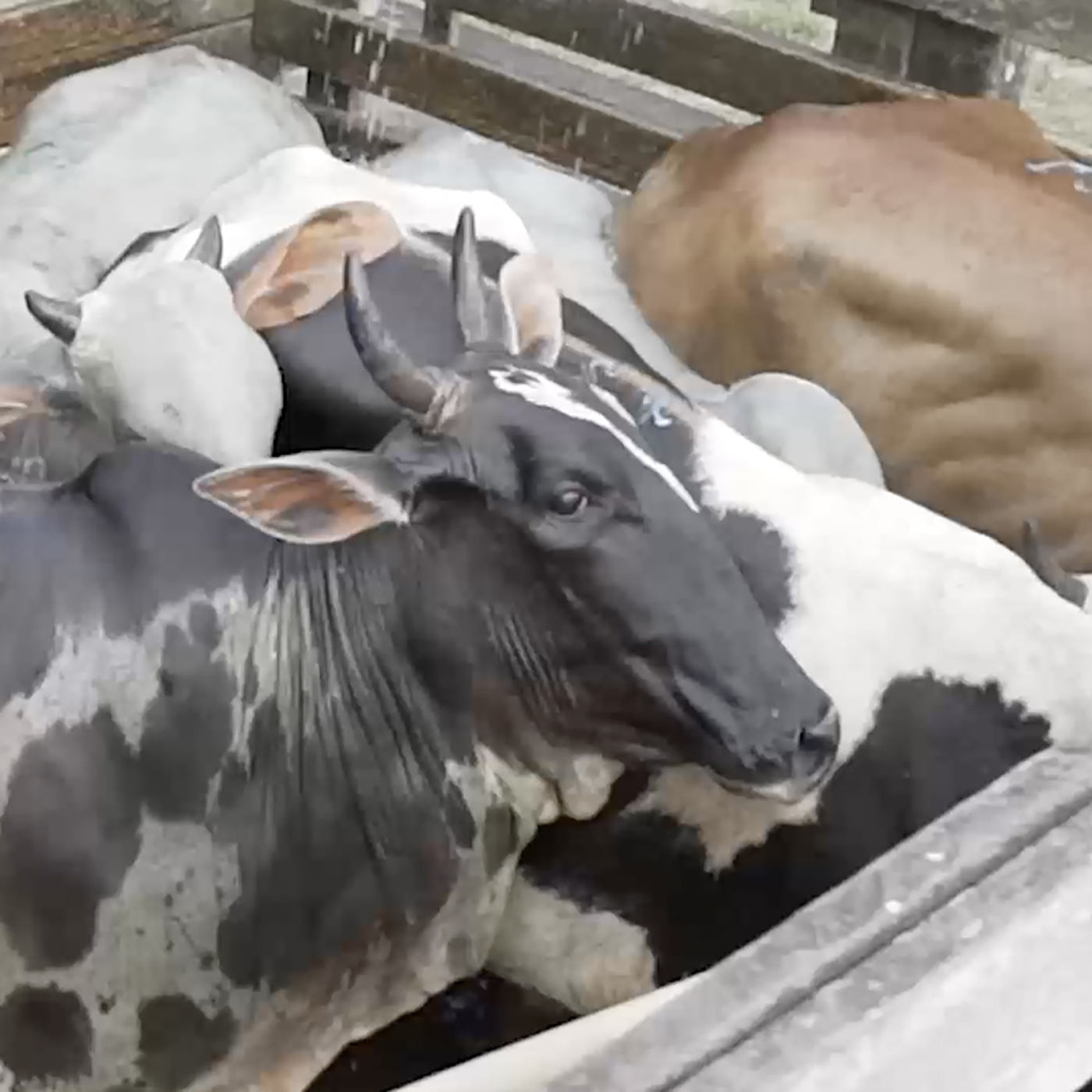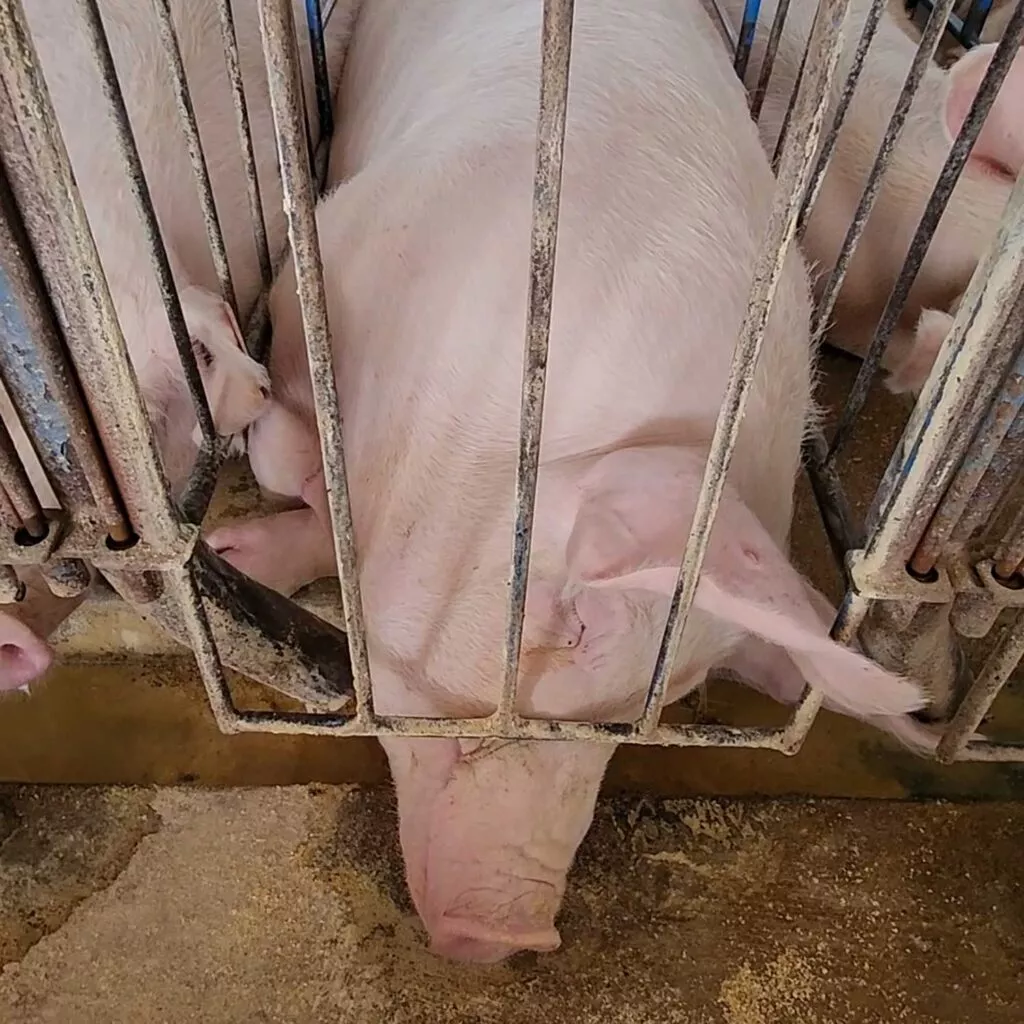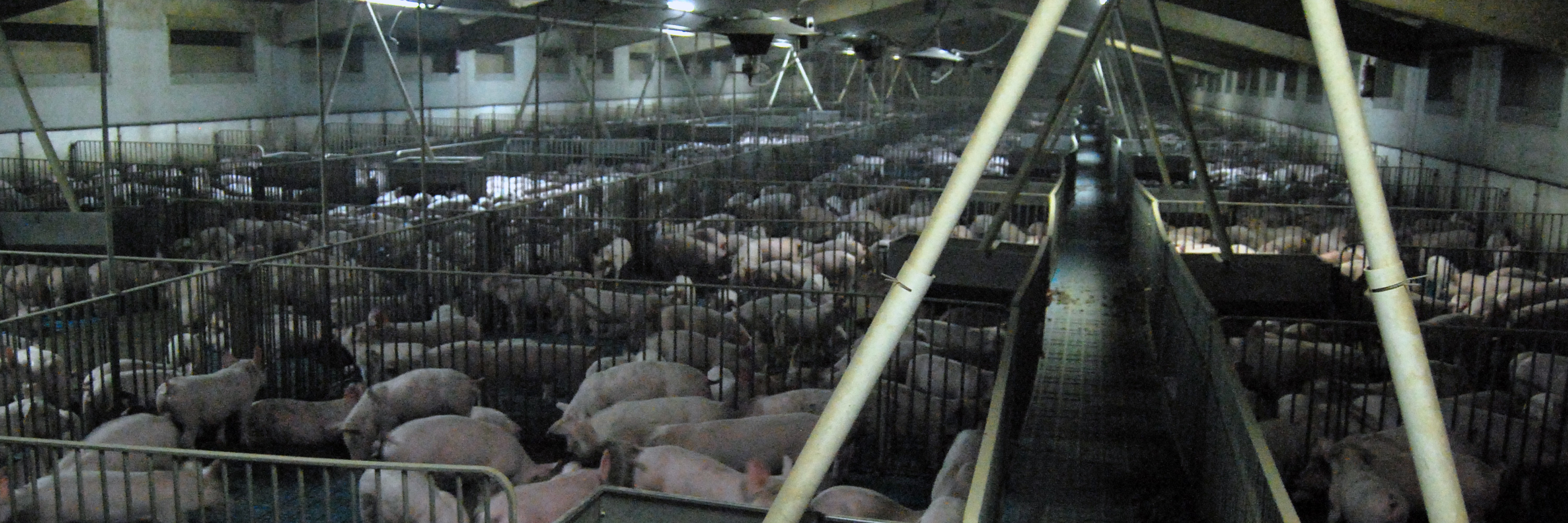
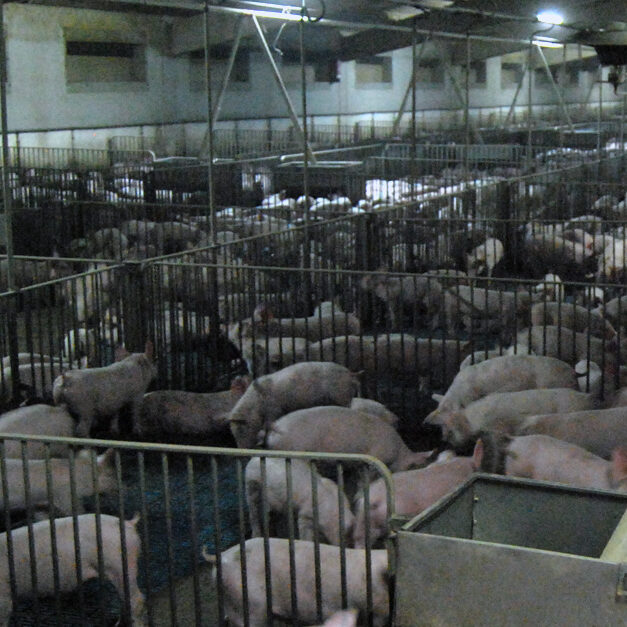
The Devastating Impact of Factory Farming in Spain
Over the last 15 years, the number of factory farms in Spain has doubled. According to the Ministry of Agriculture, Fisheries and Food, 2,126 farms in Spain raise pigs for food.
During a recent interview with The Guardian, The Spanish Minister of Consumer Affairs Alberto Garzón spoke candidly about the detrimental effects factory farming has on the environment, public health, and animals.
At Animal Equality, our 15 years of undercover investigations have shown us first-hand how damaging the meat industry is. And Mr. Garzon’s statements are significant in creating change at the judicial level and providing transparency to consumers. Bringing these issues to light is especially crucial in Spain, where pig farms are so prevalent.
According to Garzón, intensive farming is unsustainable for the environment, and the quality of meat produced is poor due to the mistreatment of the animals. He cited scientific evidence that meat production is a significant cause of pollution and greenhouse gases. Another report published in October said that intensive pork farming may have caused one of Spain’s largest environmental disasters, killing thousands of fish due to nitrate-laden runoffs.
Mr. Garzón’s statements caused major controversy among the meat industry, opposing politicians, and senior members of the PSOE (Spanish Socialists Workers Party). Many felt that his comments damaged Spain’s credibility as a prominent producer in the meat industry and called for his resignation.
So what’s really going on in a country that’s on track to becoming the European Union’s leading pork producer?
The truth about pig farms in Spain
Pig farms in Spain are highly industrialized facilities. The law allows them to house up to 7,200 animals or 21,600 per year. In facilities used for breeding, they can house up to 2,880 sows that can each give birth to as many as 27 piglets throughout the year.
More than half of the factory farms in Spain are located in Catalonia, Aragon, Castilla y Leon, and Castilla-La Mancha. Despite these farms being highly profitable, they still receive public subsidies.
These factory farms can cause several public health issues for local communities such as air pollution and contaminated water.
Why is there an increase in factory farms?
Within the last 20 years, Spain began to see an increase in large factory farms and a decrease in small to medium-sized farms. Since 2007, there has been an increase in pigs by 50% but a decrease in farms by 11%.
So what’s causing the increase in intensive farming?
Spain has met demands for meat and increased its production drastically due to increased exportation. These farms act as high-production facilities, capable of rapidly producing and exporting meat to countries like China, one of the main destinations for pork from Spain.
In 2020 alone, there was an increase in exportation by 20% compared to the previous year.
Pollution caused by factory farms
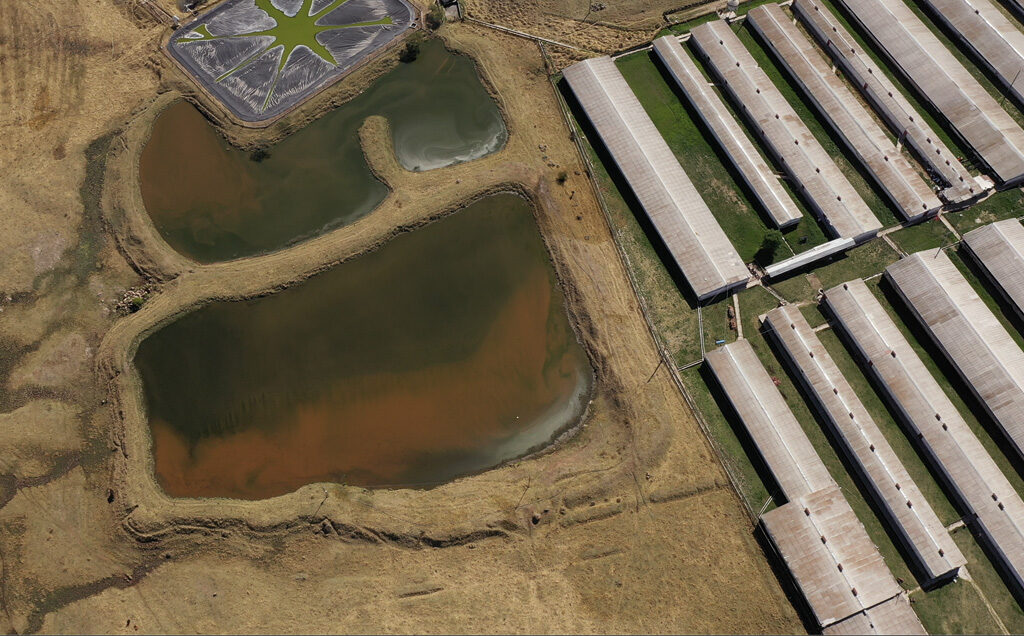
The environmental degradation caused by these giant factory farms is significant. Pig farms especially have a massive impact on the environment and the public health of surrounding communities due to their high levels of waste production.
Through our investigations, we’ve found that these intensive pig farms can generate up to 15,480 feet of manure, the equivalent of filling 4.6 Olympic swimming pools per year. The toxic waste particles can filter through and contaminate drinking water.
In Spain, 22% of surface water and 23% of groundwater are contaminated by nitrates. These percentages exceed 50 mg/liter (2.92 gallons), the maximum level allowed by the World Health Organization. As a result, the European Commission has denounced Spain for not protecting its waters.
Not only do these farms contaminate water supplies, but they require an enormous amount of water to operate efficiently. Studies show that they require twice as many gallons of water as a town of 400 citizens (Datadista).
The conditions for animals inside Spain’s factory farms
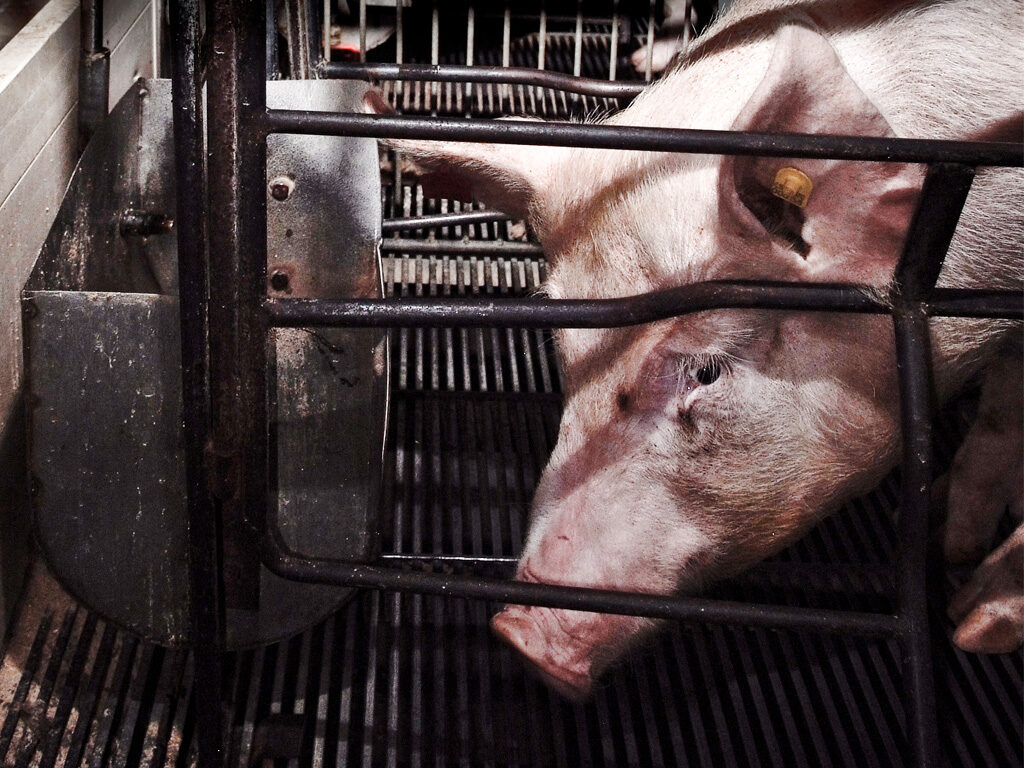
Animal Equality has been conducting investigations of Spain’s pig farms for over a decade. What we’ve uncovered are dangerous environments and an extreme amount of suffering.
We’ve documented piglets mutilated without anesthesia, raised in overcrowded conditions, among their own waste and enduring abuses and injuries that go untreated and without veterinary care. These animals are also given large amounts of antibiotics just to survive these conditions.
“Animal Equality has been investigating factory farms in Spain since 2007 with the belief that Spaniards have a right to know what happens behind closed doors,” said Sharon Núñez, President of Animal Equality. “Every time we document one of these facilities, we find animal abuse and neglect. The Minister’s comments come at a time when there is an increased awareness of the environmental and animal welfare impact of factory farming.”
Why our work matters
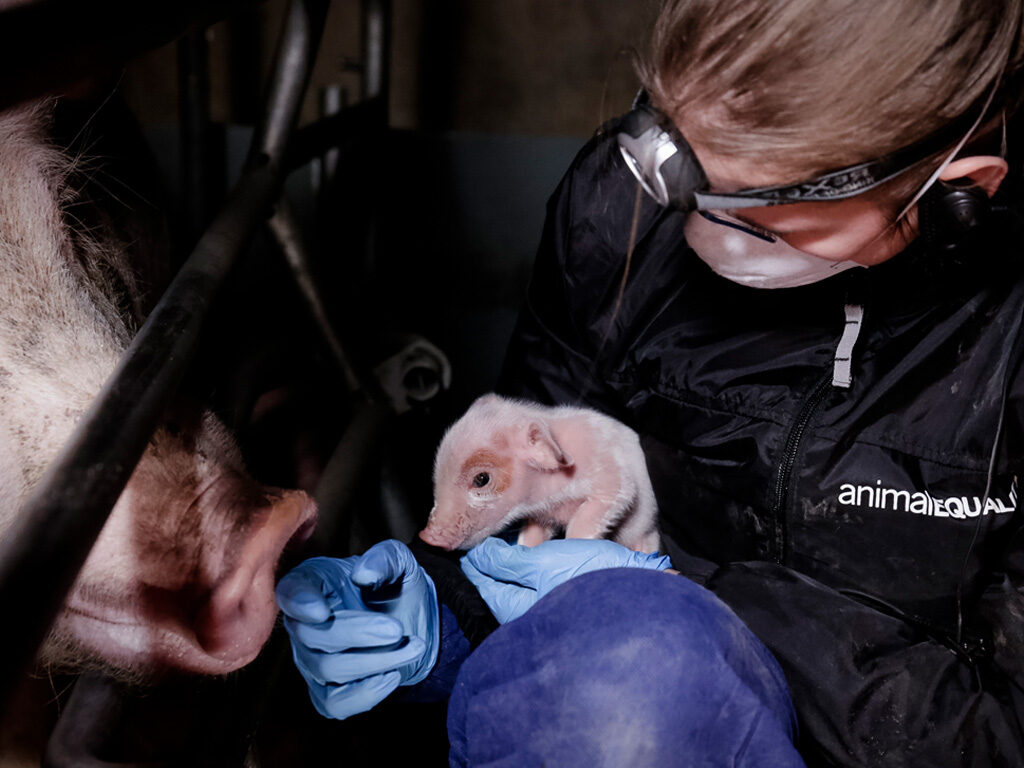
At Animal Equality, we have worked tirelessly to educate consumers about the animal agriculture industry through our investigative work, legal advocacy, and corporate outreach. And thanks to your continued support, we’ve impacted the lives of millions of animals worldwide.
We are determined to create a world where animals are respected and protected at the highest levels. We hope that more people in positions of power with the ability to create lasting change will continue to speak out against the meat industry and its impact on animals and the environment.
What you can do
It’s difficult to imagine the massive number of pigs that are killed yearly in Spain alone. But it’s never too late to get involved and be a part of our mission to end cruelty to farmed animals everywhere. One effective way to get started is leaving animals off of your plate and choosing plant-based alternatives whenever possible. By taking this simple action, you save the lives of animals and help save our environment.
You can also help spread awareness by sharing news about our investigations and supporting our work.
Recommended
